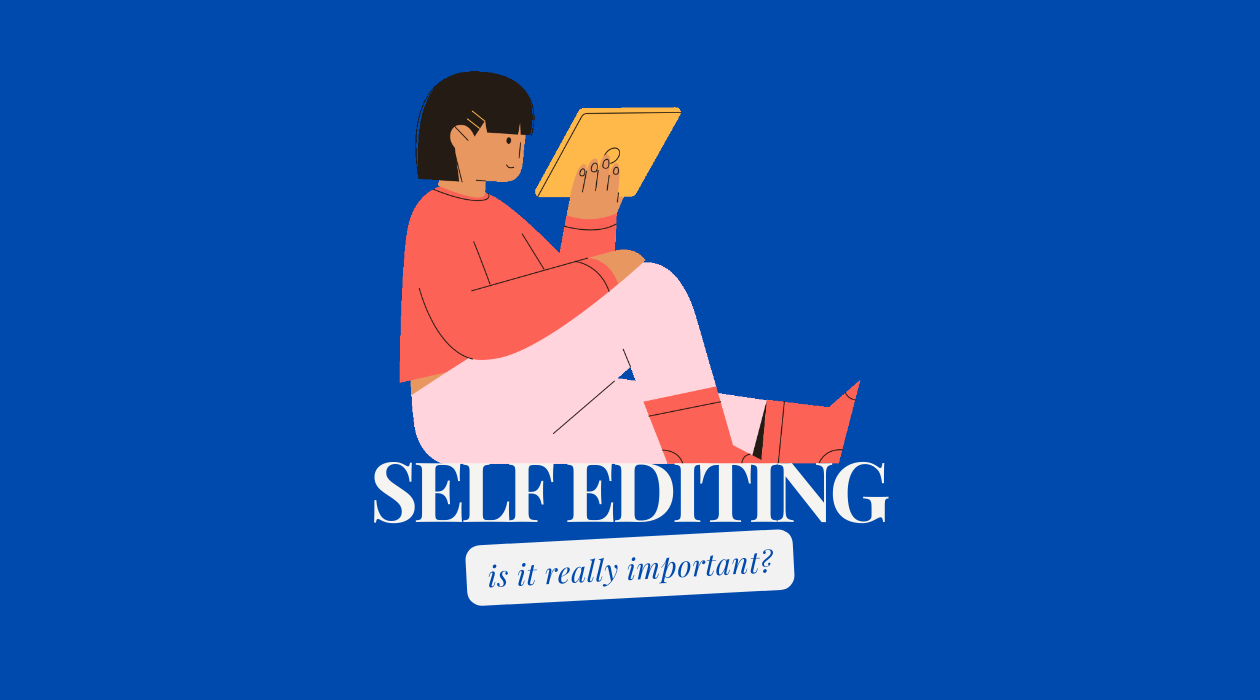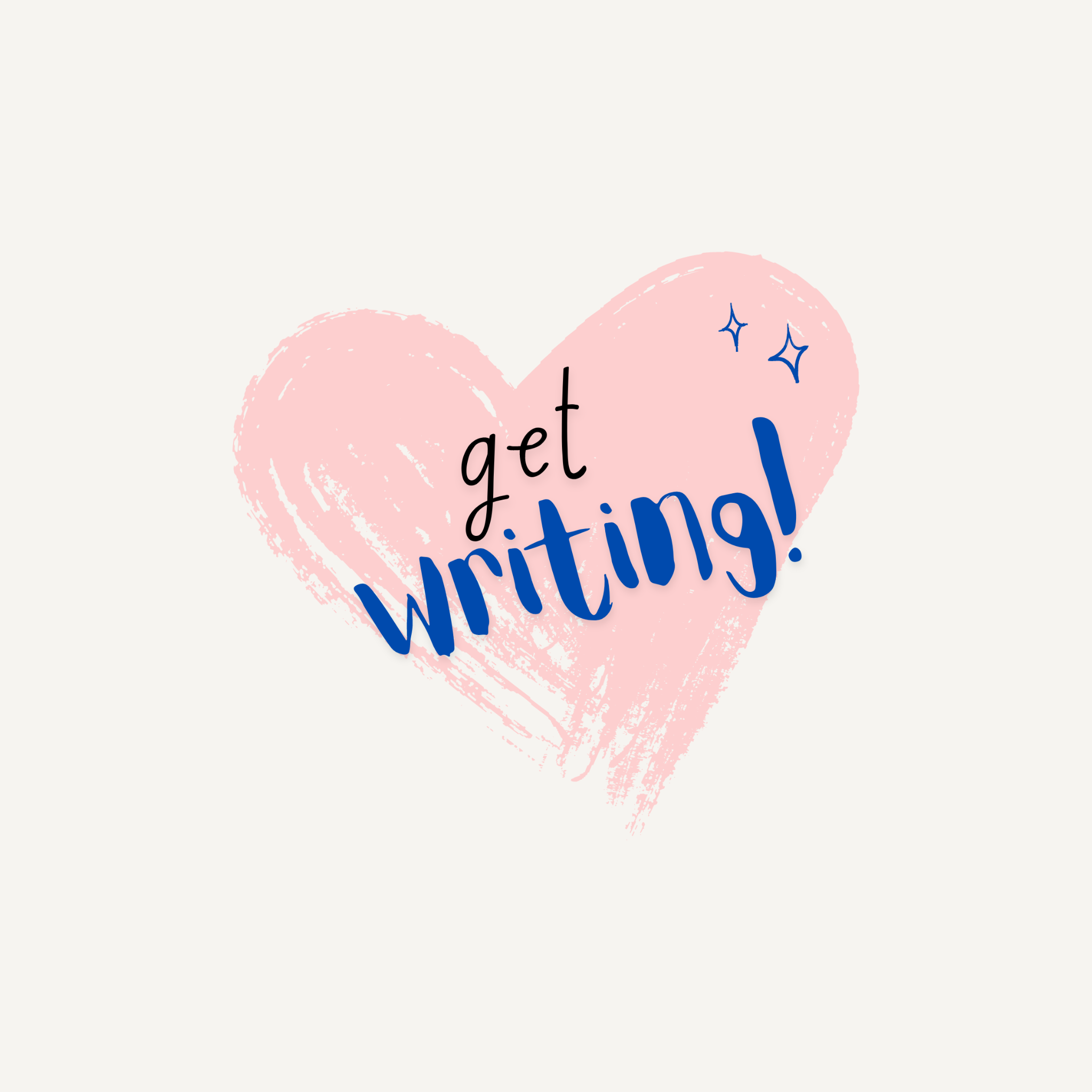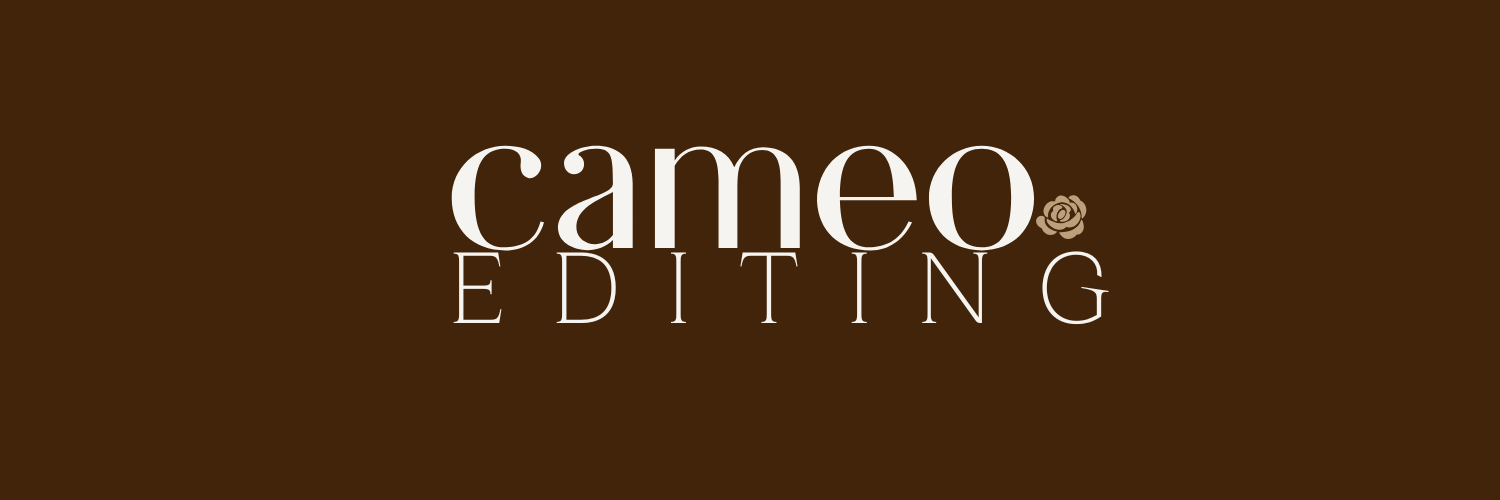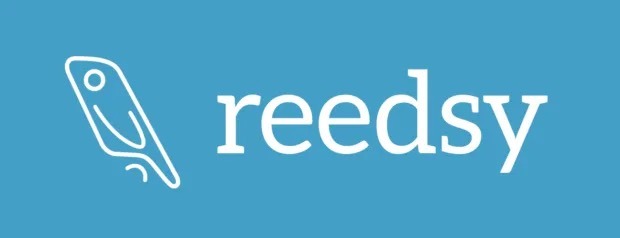Is self-editing really important?
Some of the most common advice that is given to new authors is that they shouldn't edit their own work. This is a lie.
What we really mean is that authors should not be editing their own work whilst still in the process of writing their first draft. However, when the pain of reaching your word count goal is achieved and you've got something that kinda, actually looks like a real story in front of you—you should absolutely be self-editing your manuscript.
And this is why!

Self vs professional editing
You may be thinking to yourself right about now, 'Hey—why on earth would I spend my time editing my manuscript when you've already told me that professional editors are invaluable?'
And this would be a good point—we all understand that self-editing can feel brutal and like the last thing you'll want to do when you've finished drafting. But, the truth is, self-editing and professional editing are not mutually exclusive and you shouldn't make the mistake of skipping that crucial first step of reviewing your own writing.
There are many reasons why self-editing your work before finding a professional editor is important. Let's look at why.
1: Your story might change!
So, the biggest reason as to why you might want to hold off on spending your hard-earned pennies on a professional editor a little longer is that. . . your story might change. It might change a lot.
Did you know, that in the first draft of J.K. Rowling's Harry Potter, the story opened with a chapter focusing on Harry's uncle, Vernon Dursley?
F. Scott Fitzgerald's The Great Gatsby is initially thought to have begun as a short story titled Winter Dreams. Alternative titles previously included Among Ash-Heaps and Millionaires, Trimalchio, Trimalchio in West Egg, On the Road to West Egg, Under the Red, White and Blue, The Gold-Hatted Gatsby and The High-Bouncing Lover.
And, J.R.R. Tolkien's The Hobbit went through a whole heap of changes from first draft to publication. In the draft, Bilbo was charismatic and outgoing but this was tweaked to make him the reluctant and introverted hero we know today. Gollum was also far more friendly!
Can you imagine if these iconic stories still followed these original drafts? Well—they may not be the iconic stories we know and love today.
When self-editing your manuscript, you may come across certain story elements, characters and more that give you pause for thought. You may even be reading through and have a breakthrough idea that affects the entire plot. Perhaps you decide to start thinking about how you can plan for a series and want to slip in subtle teasers along the way.
Regardless, self-editing is the perfect time to contemplate all these things!
2: You'll develop your skills
Writing is incredibly subjective. How do you know you're a good writer? How do you become one?
While there are many ways to be a good writer in other people's eyes, one thing remains clear—you'll never get there without practice. Lots of practice, in fact.
Self-editing allows you to think critically about your writing and reading it back will allow you to spot the things that are working and the things that aren't. By going back through your writing, we can begin to understand how to better formulate our sentences and even develop our own styles.
Whether it's poetic, flowing descriptions or humorous, conversational sentences, self-editing can allow you to hone your skills and create a dynamic, unique voice as an author.
3: Your future projects will benefit
More to the point, self-editing—and improving your writing craft in the process—will benefit your future self and writing.
Gone are the days of puzzling over compound sentences and in are those of easy(er) first drafts. With practice, you'll begin to identify the common pitfalls in your writing and fix them before they even occur.
By knowing what to look out for, you'll become better equipped to not only solve problems but avoid them altogether. Way to go for being a writing powerhouse!
4: You'll be better prepared for the real thing
Remember how we said that self-editing and professional editing are not mutually exclusive?
Self-editing is your primary step in the editing process and, like we've covered it's important for a lot of reasons. However, it is only the first step in the editing process to creating an impressive, polished and ready-to-publish manuscript.
Editing can feel brutal at times. There's no other way to put it. Once you've invested so much of yourself into a project, it's hard to see anything happen to it. Whether you're the one culling paragraphs or someone else it, each word can feel like a tiny paper cut.
But, editing is necessary. And, it's important it's only being done to benefit your manuscript and story in the long run.
One of the best things about self-editing is that it prepares you for professional editing. You'll develop a thicker skin, so to speak. If you can spot the weaknesses in your own writing and learn that editing is an important step in being a good writer, it won't be as difficult to hear someone else's feedback.
5: You'll be able to spot feedback that aligns with your goals
One of the hardest things to learn as an author is learning which editorial advice to take and which to ignore. 'Too many cooks' applies to the writing process and, while it can be tempting to take on board any suggestions that come your way, you probably shouldn't
When setting out on this journey, way back when your story was still just an idea, you probably had some goals for what you wanted to say.
While editors can provide excellent advice, suggestions and ideas that will help you to create a masterpiece, there's also a reason they're not the ones writing your specific story. Their ideas are just ideas—and, sometimes, their ideas may not align with your vision for your manuscript.
And, this is fine! Not all suggestions will be something you want to take on board. But, self-editing is important to ensure that you're able to build a clear vision for your project and only take in the suggestions which will support this.
After all, your editor won't know your vision unless you've thought about it and told them.

So, the next time you think that self-editing isn't so important, try to remember these points.
While professional editors are great and can help guide you and your manuscript toward your goals, they cannot do so without your valuable input.
Don't make the mistake of skipping the self-edit!


0 Comments Add a Comment?